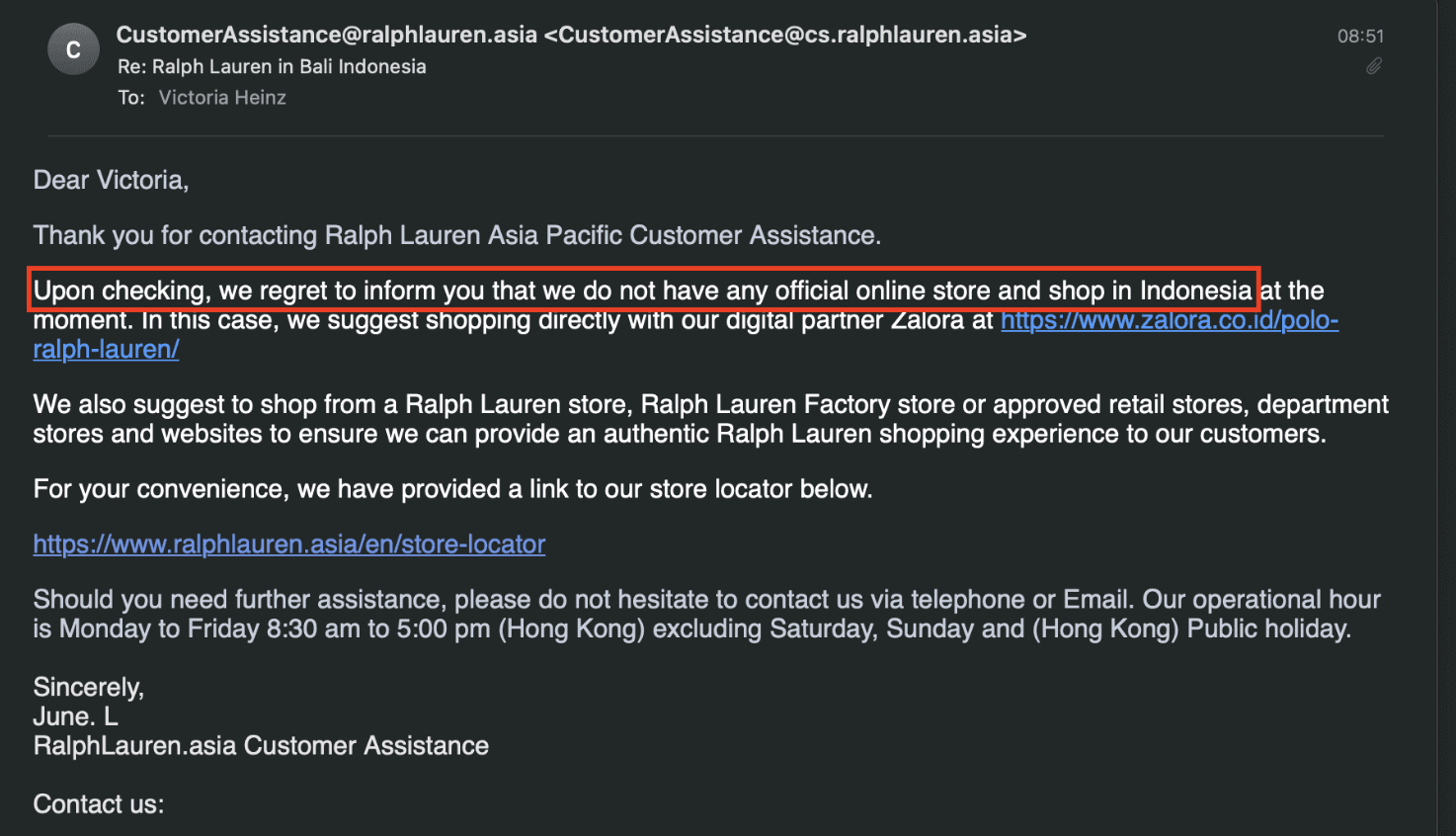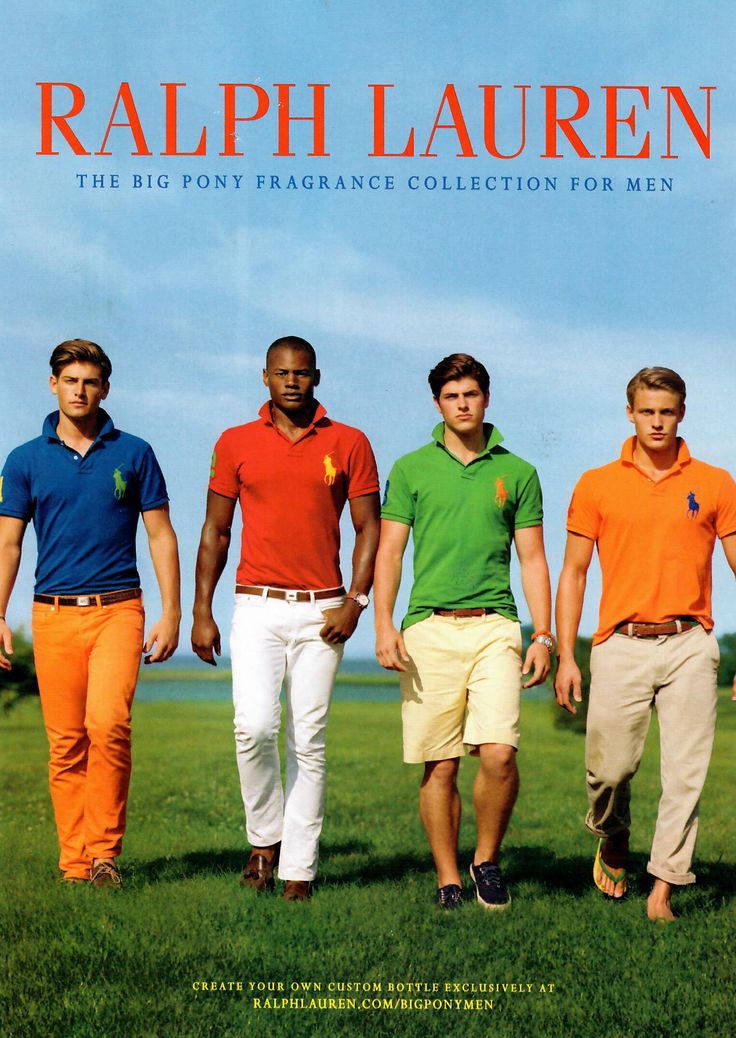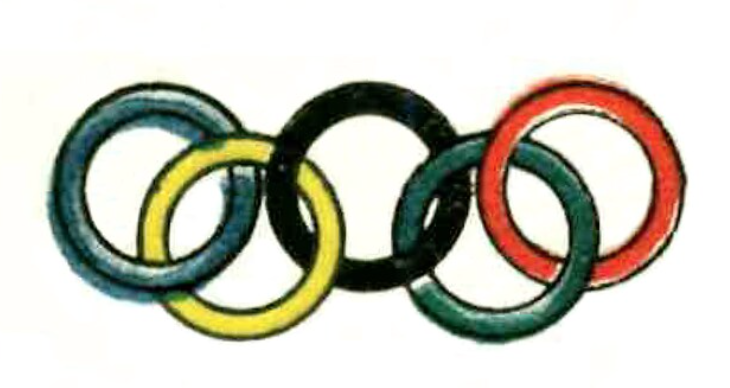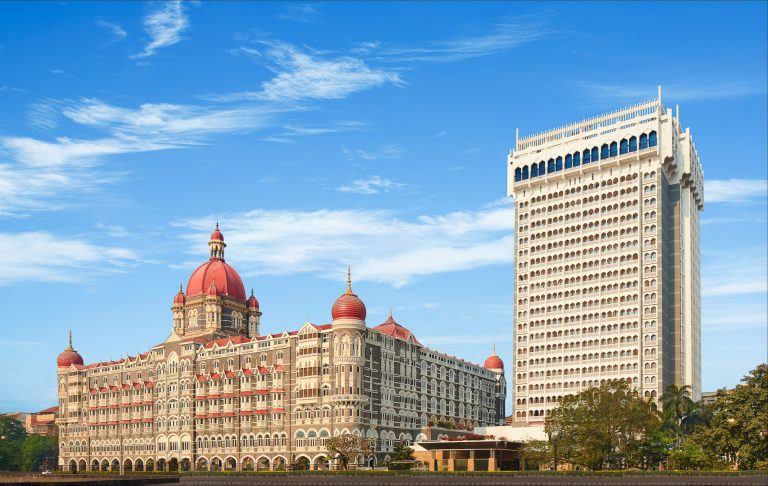Going to Bali for the holidays? Don’t fall for the fake Ralph Lauren Stores there!
Before you get swayed by the obnoxiously low prices at the very real looking Polo stores in Bali, know this: the Polo Ralph Lauren stores you’ll encounter across the island are not affiliated with the renowned American brand. The trademark for Polo Ralph Lauren has been at the center of a significant intellectual property dispute involving Ralph Lauren and Indonesian authorities.
This dispute unveils a complex legal landscape, highlighting the critical role of trademark law in protecting brand authenticity amidst commercial challenges. The conflict revolves around the transfer of Polo Ralph Lauren trademarks between different entities, triggering a legal whirlwind marked by conflicting claims and evidentiary discrepancies.
A pivotal case in Indonesian legal history, initiated by Mr. Mohindar H.B., underscores the contentious nature of trademark ownership. Claiming rights to the POLO RALPH LAURENT trademark and the Logo of the Horseman register No. 173934 through an underhand purchase from Mr. John Whiteley in 1986, Mr. Mohindar registered the rights transfer with the Directorate of Patents and Copyrights later that year. Subsequently, he sued PT POLO RALPH LAUREN INDONESIA (PRLI) for using the mark POLORALPHLAURENT for similar goods.
However, PT Manggala Putra Perkasa (MPP) also asserted ownership, having obtained the trademark from John Whiteley through a notarial deed. The ensuing legal battle, culminating in various court decisions, affirmed Mr. Mohindar H.B. as the rightful owner based on the first purchase principle, despite challenges to the authenticity of some of his evidence.
The saga highlights the legal complexities surrounding trademark transfers in Indonesia, where the authenticity and origin of documents play crucial roles in determining ownership. The court’s scrutiny exposed discrepancies in the trademark certificate used by Mr. Mohindar, which did not align with official records maintained by the Directorate of Copyright, Patents, and Trademarks. This discrepancy, coupled with allegations of document forgery, underscores the challenges businesses face in navigating Indonesia’s trademark enforcement landscape.
In navigating these complexities, businesses are urged to adhere to legal principles governing trademark transfers, emphasizing the importance of due diligence and authenticity in documentation. The case serves as a reminder of the legal uncertainties businesses may encounter and the imperative of engaging knowledgeable legal counsel to safeguard intellectual property rights effectively.
Amidst the legal intricacies, the presence of counterfeit Polo Ralph Lauren outlets across Bali adds another layer of complexity. These establishments mimic the authentic brand’s appearance with iconic logos and colonial-style architecture. Yet, discerning consumers soon discover discrepancies upon closer inspection: pricing anomalies, outdated marketing materials, and deviations from Ralph Lauren’s genuine product lines.
 Even when you email the company about it, they deny sale of any authetic merchandise in Indonesia and even esistence of any store in the region. Despite Ralph Lauren’s efforts to combat counterfeit operations in Asia, these outlets continue to proliferate, posing challenges for brand protection. In light of these challenges, consumers are advised to exercise caution when shopping for Polo Ralph Lauren products in Bali. While some may choose to purchase knowingly, understanding the risks involved, others are encouraged to explore alternative shopping avenues to avoid inadvertently supporting counterfeit trade.
Even when you email the company about it, they deny sale of any authetic merchandise in Indonesia and even esistence of any store in the region. Despite Ralph Lauren’s efforts to combat counterfeit operations in Asia, these outlets continue to proliferate, posing challenges for brand protection. In light of these challenges, consumers are advised to exercise caution when shopping for Polo Ralph Lauren products in Bali. While some may choose to purchase knowingly, understanding the risks involved, others are encouraged to explore alternative shopping avenues to avoid inadvertently supporting counterfeit trade.
References:
- https://guideyourtravel.com/polo-ralph-lauren-bali-indonesia-fake/
- https://www.dmarge.com/never-buy-ralph-lauren-clothes-in-bali






